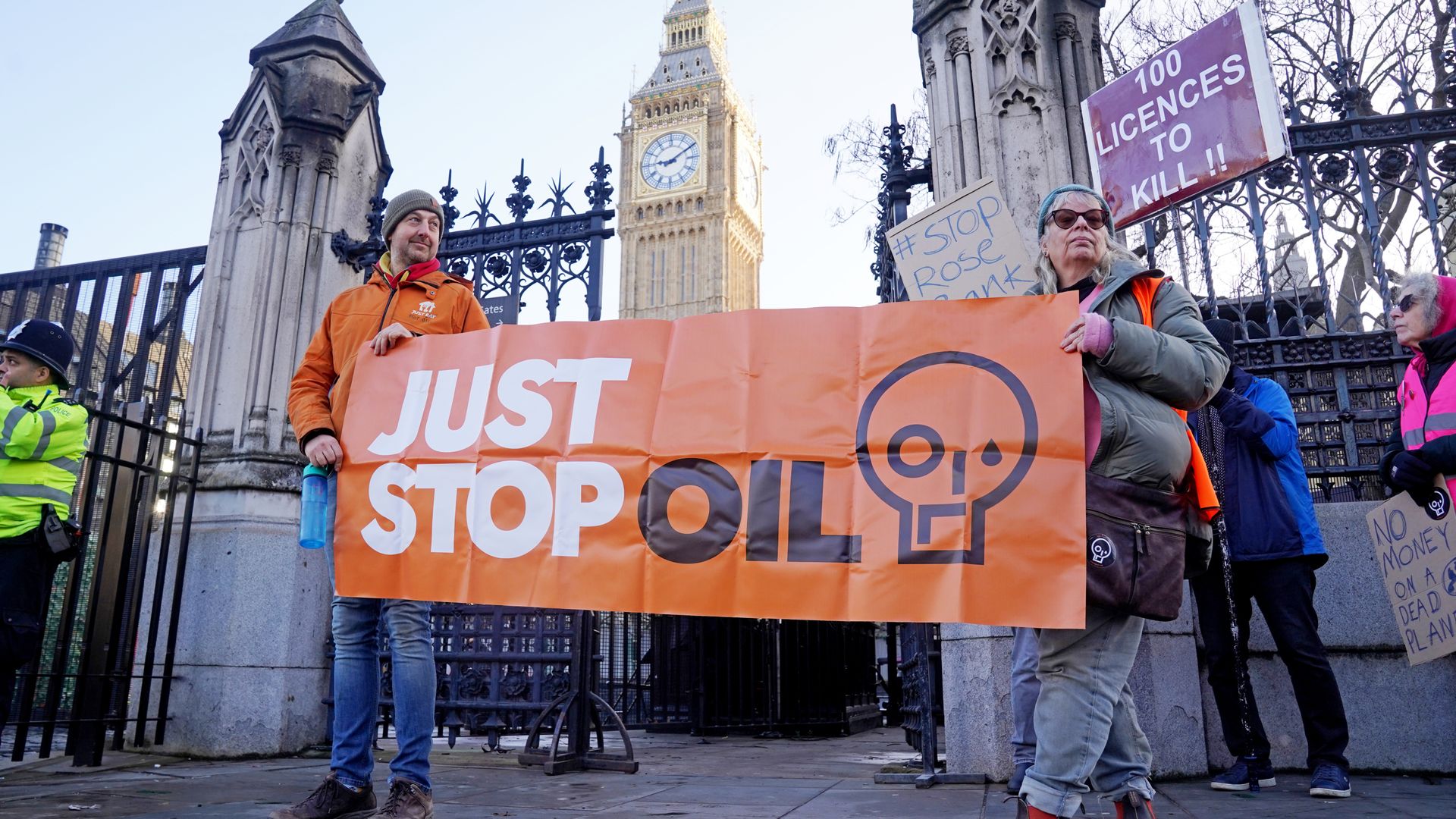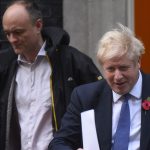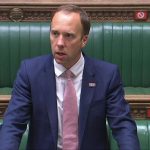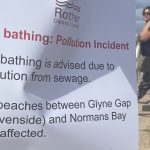The government’s attempt to lower the threshold for police intervening in protests was unlawful, the High Court has ruled.
Campaign group Liberty brought legal action against the Home Office over protest regulations passed by statutory instrument last year.
Politics Live: Rishi Sunak promises to ‘move as quickly as possible’
The measures lowered the bar for what is considered “serious disruption” to community life, from “significant” and “prolonged” to “more than minor”.
They also allowed police officers to take into account “any relevant cumulative disruption” of repeated protests.
Liberty called the High Court ruling a “huge victory for democracy”.
Ministers had tried to introduce the same changes when the Public Order Bill went through parliament, but they were rejected by the Lords at the time by 254 votes to 240.
Politics latest: Final compensation payments for infected blood scandal victims to begin by end of year, minister announces
Infected Blood Inquiry: Ken Clarke should be stripped of peerage, say victims
IMF upgrades UK growth forecast but issues fresh warning on national insurance cuts and debt
The step to restore the provisions by statutory instrument, which faces less scrutiny than primary legislation, was criticised at the time but passed last year.
‘Huge victory for democracy’
At a hearing in February, lawyers for Liberty asked the High Court to quash the “unlawful” provision.
And in a ruling on Tuesday, two judges ruled for the group, finding the Home Office acted outside of its powers by reducing the threshold and failed to carry out a fair consultation process.
Lord Justice Green and Mr Justice Kerr said: “As a matter of ordinary and natural language ‘more than minor’ is not within the scope of the word ‘serious’.”
Akiko Hart, Liberty’s director, said after the judgment: “This ruling is a huge victory for democracy and sets down an important marker to show that the government cannot step outside of the law to do whatever it wants.
“We all have the right to speak out on the issues we believe in and it’s vital that the government respects that.
Read More:
How have protest laws changed?
Protesters who climb on war memorials could face jail
“These dangerous powers were rejected by parliament yet still sneaked through the back door with the clear intention of stopping protesters that the government did not personally agree with, and were so vaguely worded that it meant that the police were given almost unlimited powers to shut down any other protest too.
“This judgment sends a clear message that accountability matters and that those in power must make decisions that respect our rights.”
‘Extreme’ protest groups could be proscribed
The ruling comes ahead of a report by Lord Walney on political violence and disruption, which is due to be published later today.
On Sunday he did not rule out a recommendation that organisations such as Just Stop Oil and Palestine Action be proscribed in a similar way to terrorist groups.
Speaking to Sky News, the crossbench peer said he was asked by ministers to examine “extremism at the far right, but also at the anti-democratic far left, and to look at whether there has been sufficient attention to the way in which far left organisations can seek to disrupt and undermine our country”.
He said that some organisations are using “criminal tactics” to “force the conversation towards the kind of change that they want rather than engaging in democratic channels”.
Asked specifically about Just Stop Oil and Palestine Action he said: “Both of those organisations are clearly breaking the law as a way of trying to force the conversation. And I think we should be less relaxed about that.”






















